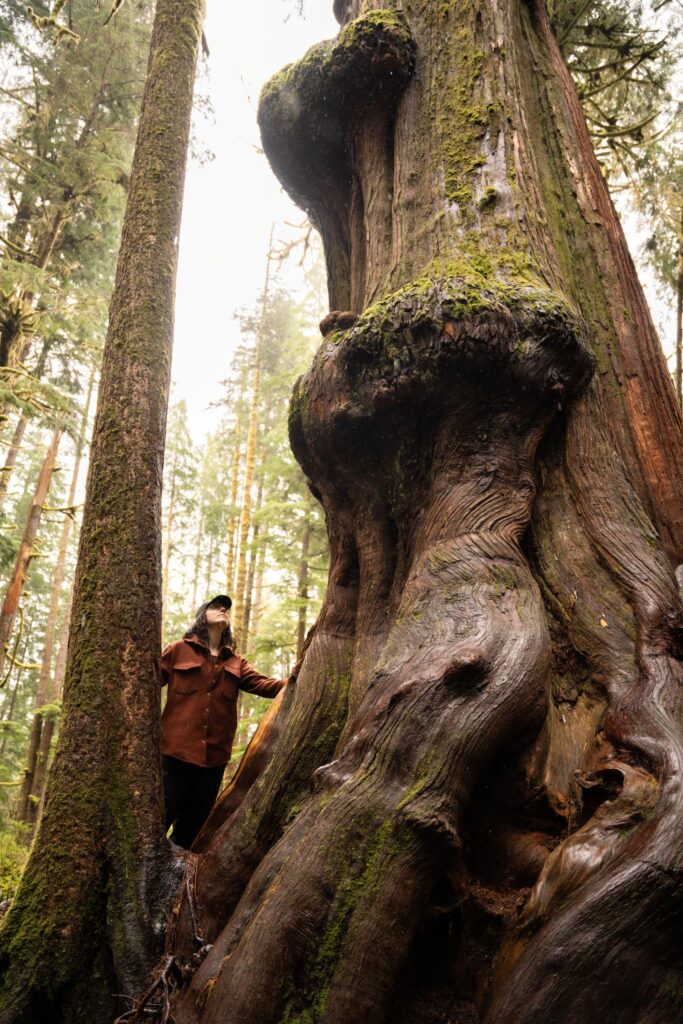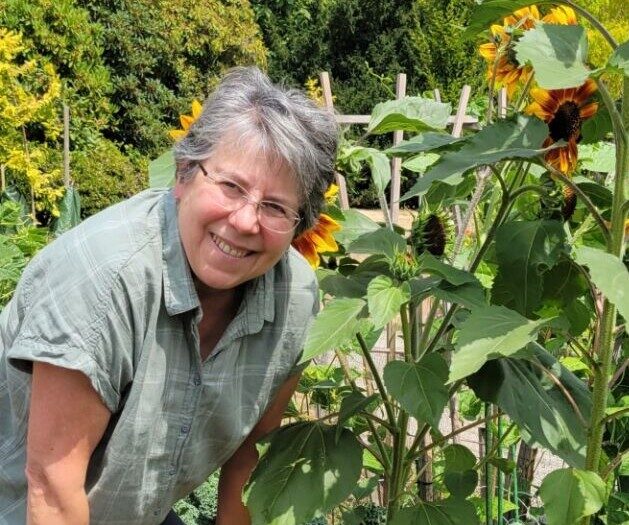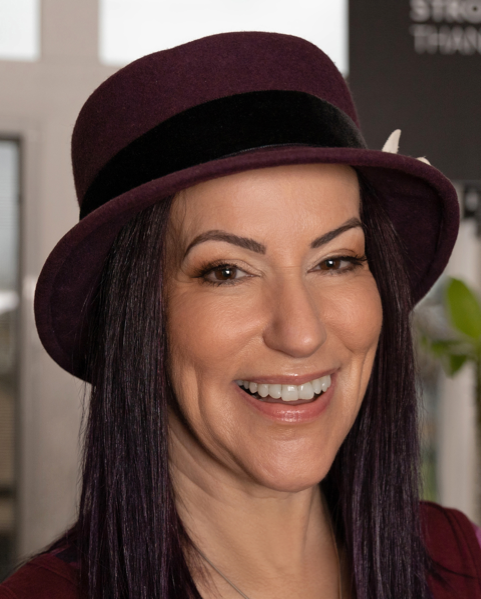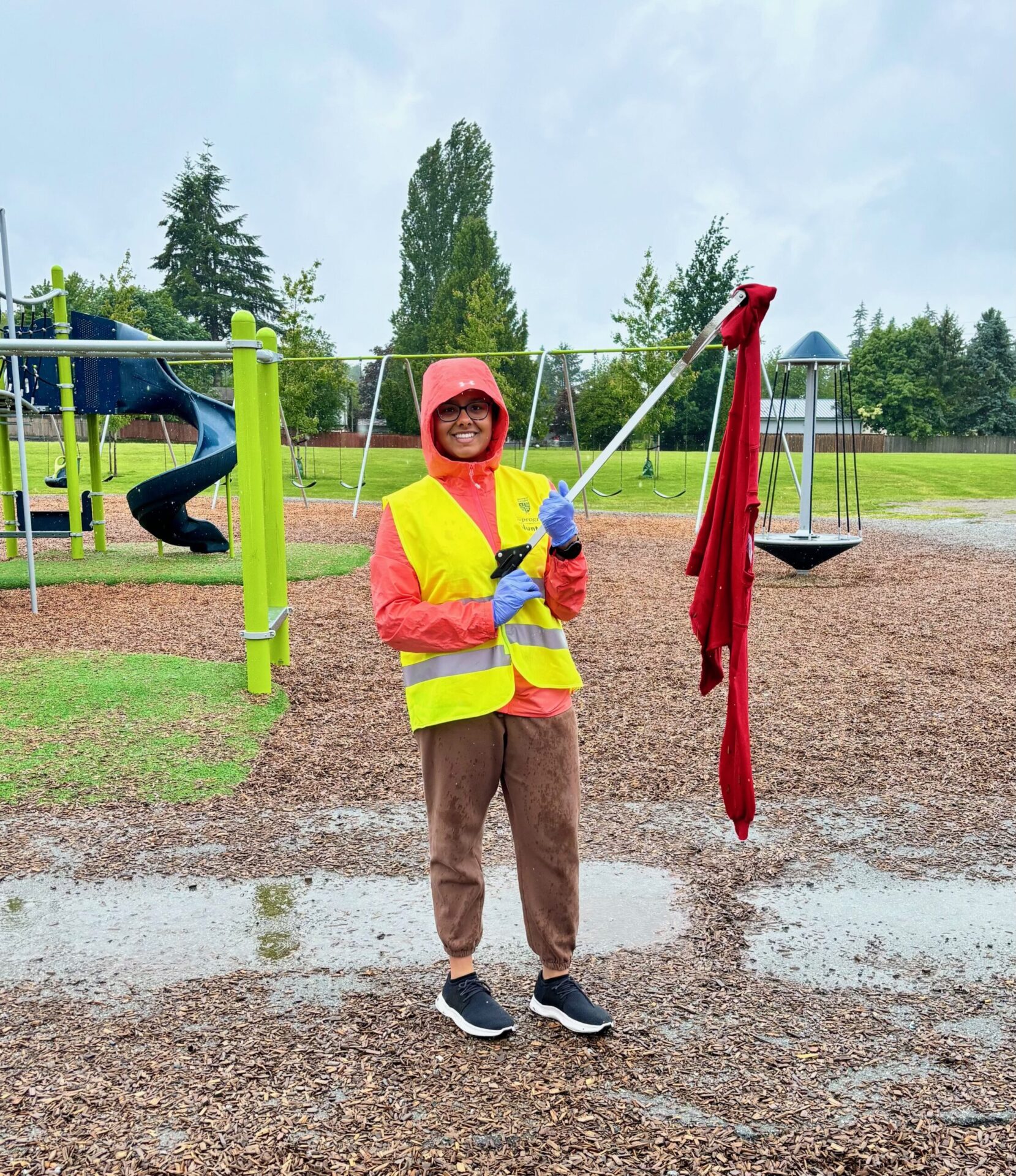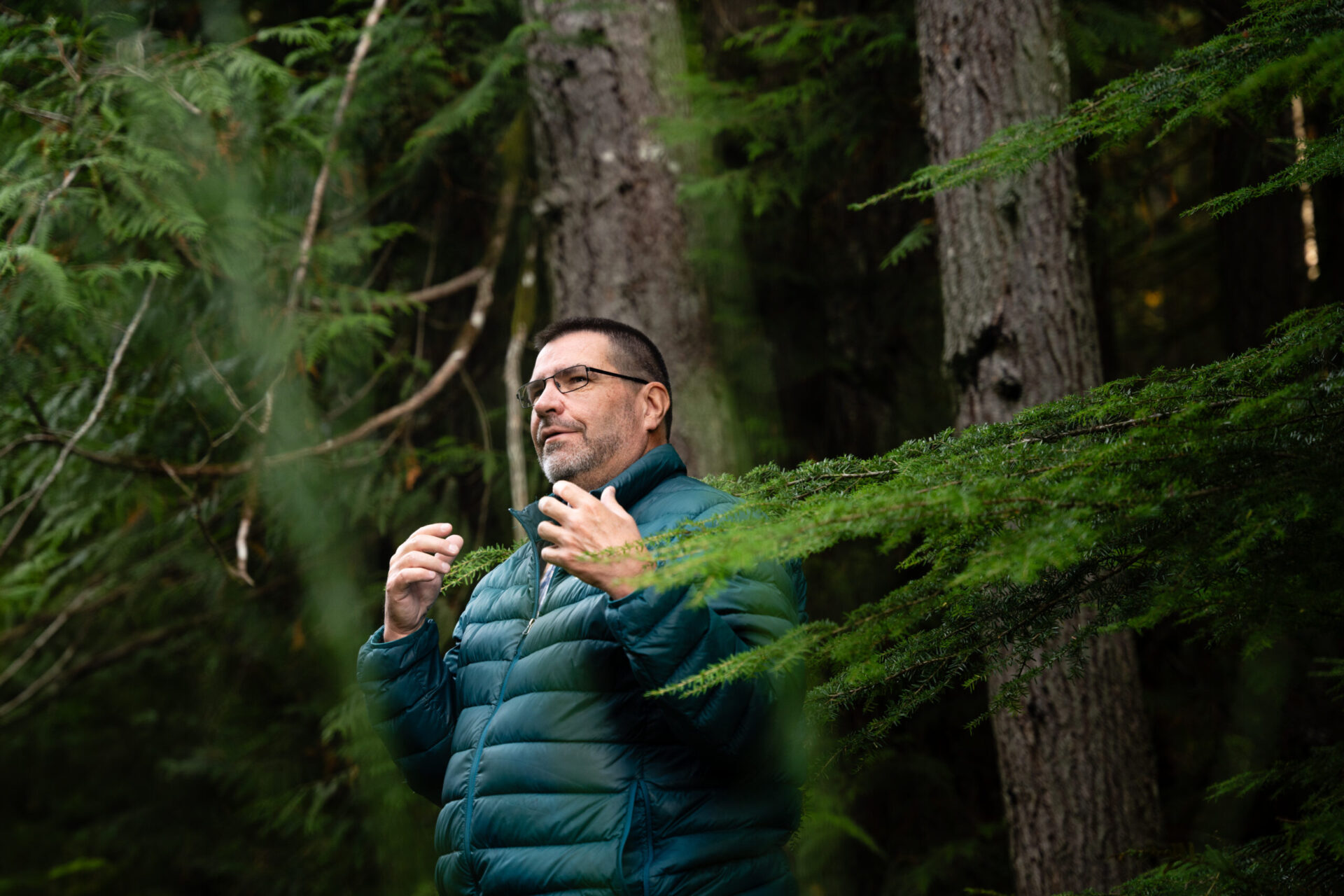Local Leader Spotlight: Meghan Fandrich
Local Leader Spotlight
Meghan Fandrich
Meet Meghan Fandrich, a local leader who survived the Lytton fire and is reaching thousands of people across Canada through her poetry and her story.
Meghan Fandrich is a neurodivergent writer, editor, and parent on the edge of Lytton, B.C., in Nlaka’pamux Territory. She is the author of Burning Sage: Poems from the Lytton fire.
Lytton is just a word to most people; the town that burned down in an hour one day after thermometers hit a record-breaking 49.6°C. But to Meghan it was her community, her home and the location of the café she started, where her daughter Helen took her first steps.
Through her loss and grief, Meghan went to Ottawa this spring to tell politicians her story and to call for a strong emissions cap on Canada’s fossil fuel sector.
Since the fire she’s been piecing her life together bit by bit after tremendous loss and heartache and part of that has been writing unflinching poetry in her book Burning Sage, which we recommend to everyone.
Read on to learn more about Meghan and her inspiring work. This interview has been edited for length and clarity.
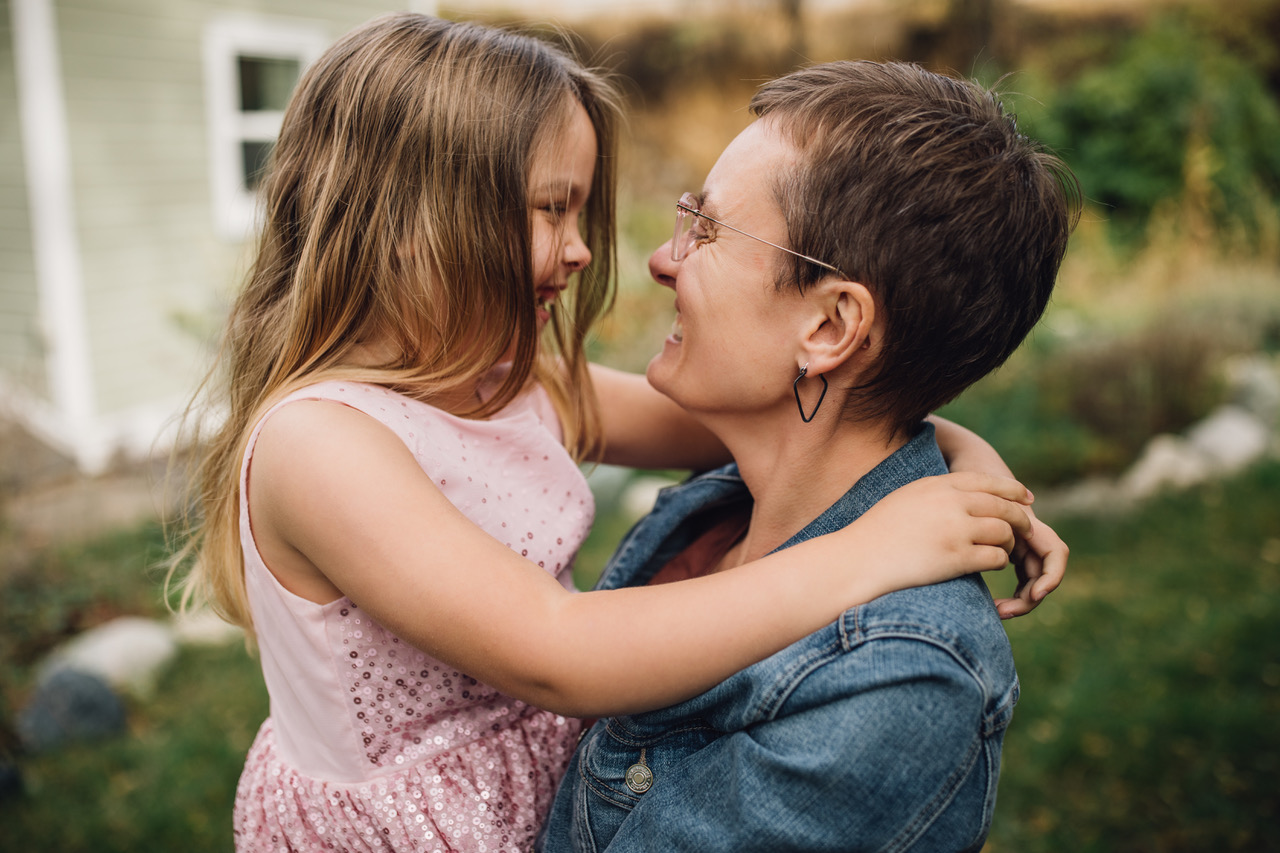
Meet Meghan Fandrich, a local leader who survived the Lytton fire and is reaching thousands of people across Canada through her poetry and her story. (Photo supplied by Meghan Fandrich).
Meghan, how are you?
Today I’m doing well, and I’ve noticed that how I’m doing really depends on the weather now. On the dry and hot days, I am not ok, and on the smoky days I am not doing ok, but today there is just this nice quiet little breeze.
In 2014 you opened Klowa Art Café, a second home for you and for much of the Lytton community. What was it like before the fire?
Klowa was a vibrant and magical place. It was so beautiful. I had a team of employees who were mostly young Nlaka’pamux women and they made a mean cup of coffee. We had vegan food and we had the work of 75 local artists and this beautiful flourishing courtyard outside so people could sit there with their coffee… It was just such a positive, creative space
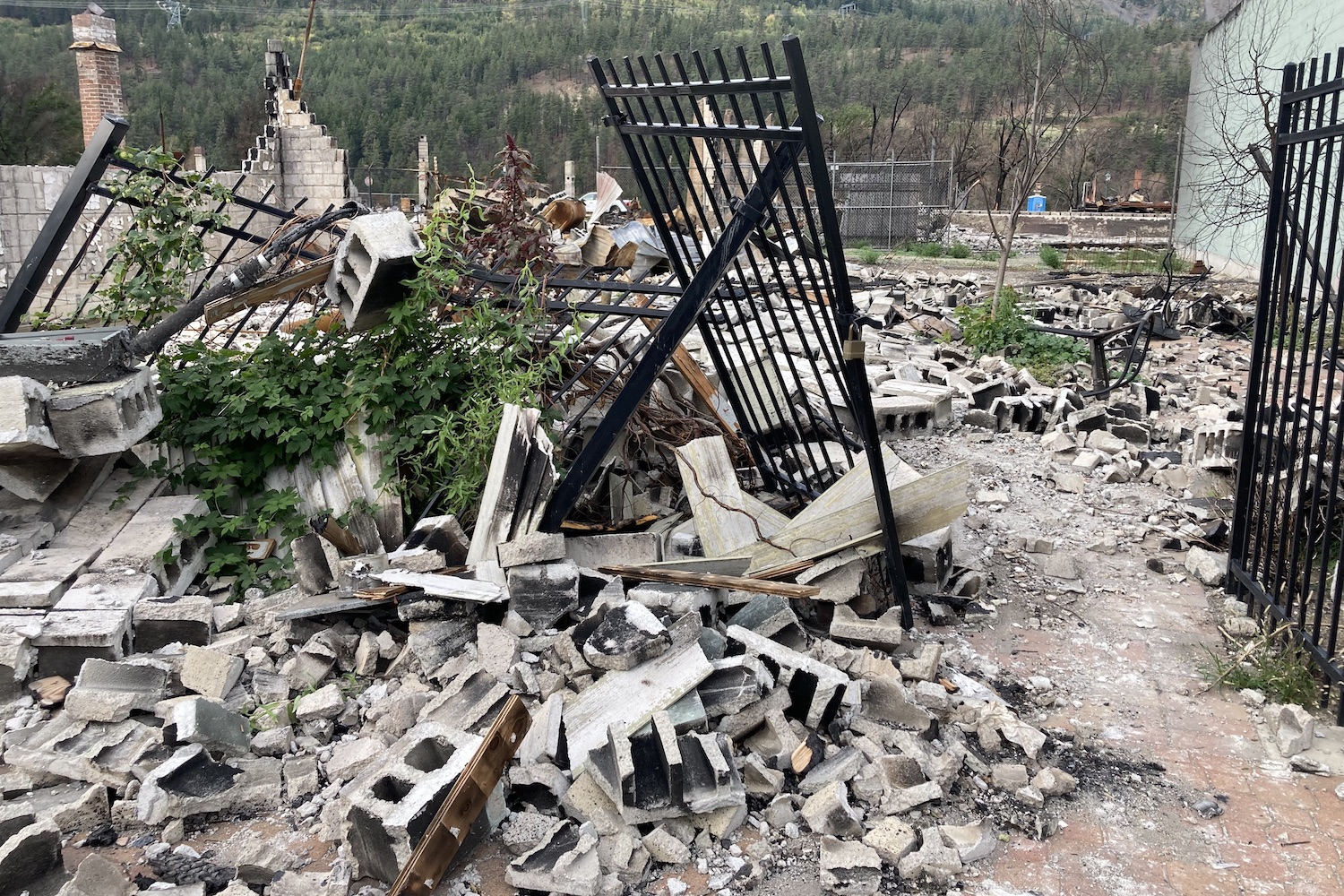
The ruins of Klowa Art Café in September 2021, three months after the fire. (Photo by Meghan Fandrich).
Every community needs a heartbeat like that. It’s wonderful that you were behind creating it. What has it been like to lose Klowa?
I can’t separate the loss of Klowa from the loss of my community. It was just something that I trusted would always be there for my future and for my daughter’s future. To be putting so much into it and then have it taken away in just a second was a really sudden loss.
What is Lytton like now?
It’s been three years since the fire and for the first two years, it was still the ruins of a town. Holes of basements and rubble strewn across it and just chimneys standing. Eventually someone came in and knocked down the chimneys so they wouldn’t fall on anyone. For more than two years, it was still just like the carcass of our town.
Then they started doing remediation, filling basement holes, scraping away the top layer of ash and in a way, erasing our remains. It was good to finally see progress. But the progress just left us with this blank slate, this flat plateau where there used to be a tree-lined main street with these cute little buildings and houses from the 40s. It was this magical, vibrant little community. And suddenly it’s just this fresh gravel over everything and with the odd young tree and a couple of homes that survived.
Now, finally, there are a dozen homes under construction and it’s beautiful to see these homes go up. One couple is going to be moving into their new house any day now. It is quite uplifting, but there’s still no grocery store, nothing that makes life easier.
What’s it been like to tell your story to others through your book Burning Sage: Poems from the Lytton fire and is there a poem you would like to share with us?
Trauma is so isolating. When I was writing the book, I showed the poems to everyone who came over. To see their reaction, to see the tears in their eyes and then feel like, oh, it’s okay that it had this huge impact on me.
I’ll read this one, which is from the first few days after the fire. It’s called “At Siska.”
When everything is burning
there is no cell service
no internet
no connection to the worried world
I am not ok
so I go south
on an empty highway
to find a pocket of reception
messages flood in
by the hundreds
from friends
family
reporters
no
no,
I am not ok
I can’t reply
can’t focus
so I don’t
except to write “we’re safe”
my town is gone
my café is gone
my house is likely also gone
I don’t know what to do
I am not ok
at the roadside
other locals
check messages too
we hug
say “love you”
but we are not ok
we are not ok
the messages become
too much
so I go north
toward the fire
on an empty highway
I am not ok
No one except Lyttonites will ever live through our experience. But everyone knows grief and everyone knows loss. In writing my book and having it published, taking it on tour and sharing it with rooms full of people, I get the most beautiful responses from people who tell me what it brought up for them. Sharing has made me feel seen.
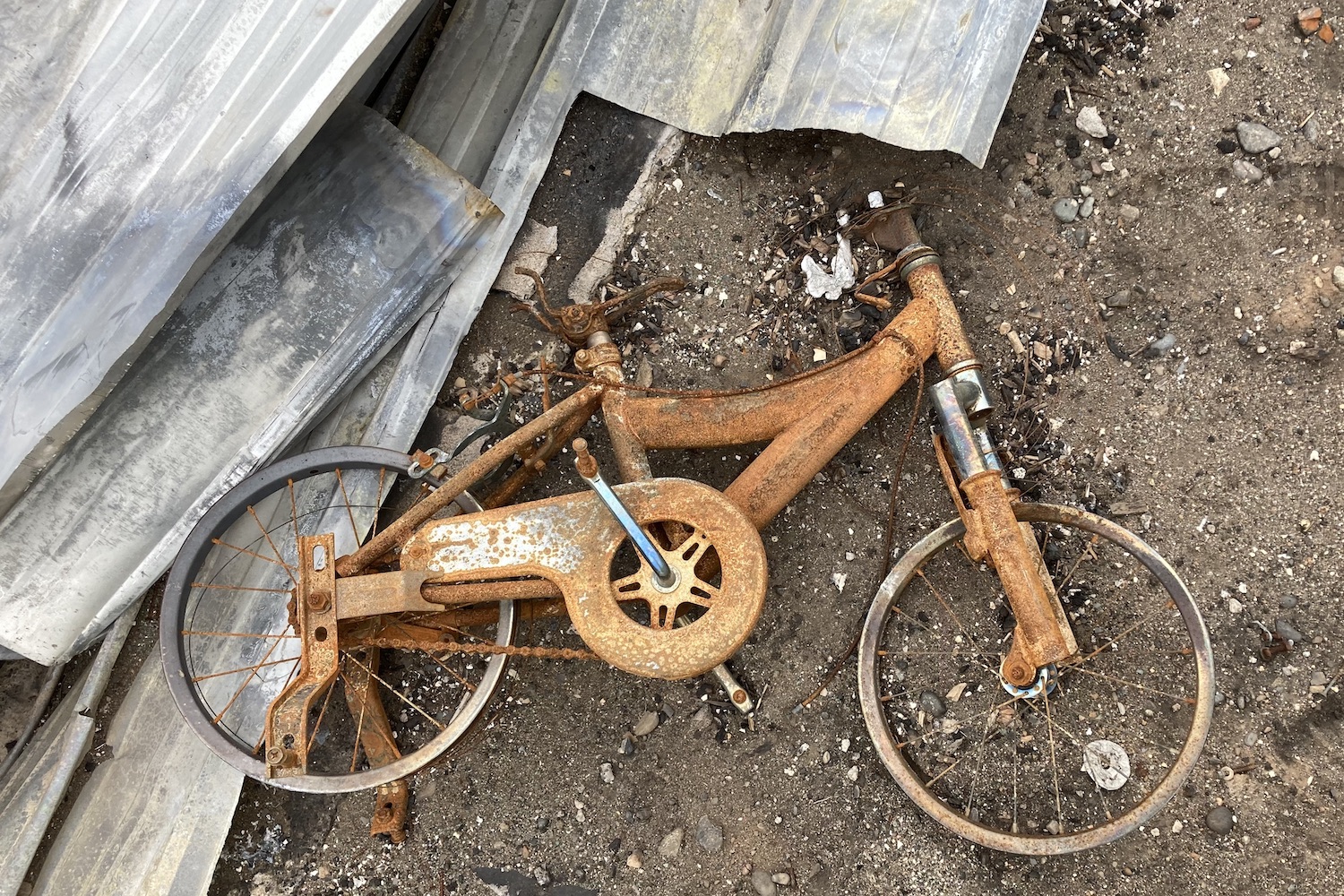
On her fifth birthday, Meghan’s daughter Helen received a bicycle, complete with training wheels, pink basket and sparkly streamers, from her best friend Mimi. It was in the courtyard of Meghan’s coffee shop when it burned in the Lytton fire. (Photo by Meghan Fandrich).
This spring you went to Ottawa to share your story with politicians – some who are in favour of putting public funds towards fossil fuel expansion. What was that like?
When I was there, I didn’t see any of those politicians face to face. I met with some who were already very much involved in climate advocacy and then we held a press briefing. Just to see the rows of reporters and politicians with tears in their eyes… Again, it’s just personally very healing but also, it’s this reminder that we all have this common humanity. And there’s hope that if they open their ears or open their hearts a little bit and feel that, then maybe they can be part of the change.
Do you have a message for folks who are maybe unsure how to take action?
Something that I’ve learned through the experience of the fire and coming through the trauma, and out on the other side, is how much strength there is in vulnerability and in being yourself and in telling your story. Big systems have the power they do because we push everything down. If we just let it out, we share it, we’re authentic with it, we raise our voices, then we will have strength. When I share my story, my personal art, I’m not changing policy. But it’s causing these ripples. All of us are capable of that.
Get inspired by other local leaders we collaborate with
You can help protect healthy ecosystems
Donate today. Together, we can build a brighter future.
